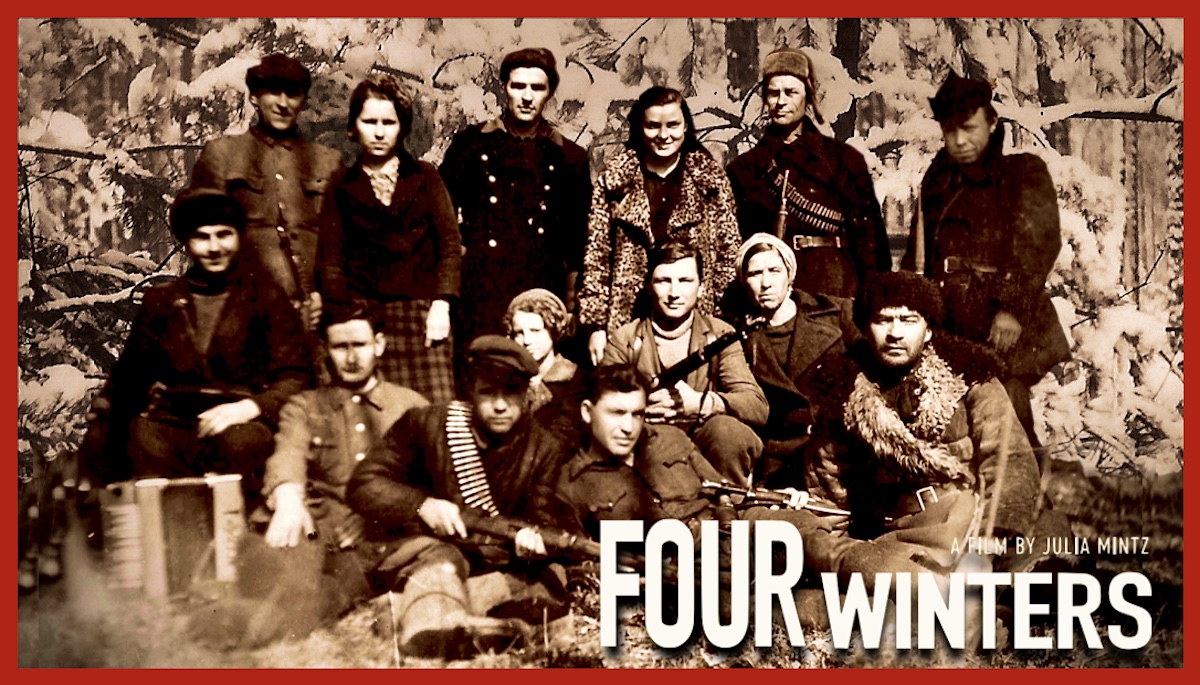Fighting Spirit, Retold
Special Santa Barbara Screening and Q&A | The Story of Jewish Resistance Fighters during WWII is Engagingly Chronicled in the new Doc ‘Four Winters’

Special Santa Barbara Screening and Q&A | The Story of Jewish Resistance Fighters during WWII is Engagingly Chronicled in the new Doc ‘Four Winters’

Although the inhumane horrors of the WWII Holocaust have been chronicled many times on film — including such high-profile projects as Night and Fog, Shoah, Schindler’s List and Life Is Beautiful — little cinematic attention has been paid to the history of Jewish resistance and freedom fighters during the Nazis’ siege. Into that unfortunate void comes an illuminating new documentary, Four Winters, which engagingly lays out the courageous tale of Polish Jews using guerilla tactics to fight back as partisans.
As one surviving partisan explains early in the film, Jews are not often given credit for fighting back against the Nazi assaults. But there’s more to the story, and here is a compelling piece of it.
Drawing on an impressive cachet of archival footage and stills (some taken from within the partisan ranks in the Polish woods), director Julia Mintz skillfully weaves the narrative, with the lived-in veracity of several survivors’ detailed and sometimes emotion-wracked testimonies.
As Jews were being oppressed, displaced, summarily murdered, and sent to mass graves, and then shipped to Treblinka and other concentration camps in the early ’40s, some found escape routes and the will to fight back by whatever means available. One survivor describes literally prying open a window on a train bound for Treblinka and leaping out from the fast-moving train to oblivion.
Bands of partisans organized in the woods, scrounging for food and weaponry, and sometimes strong-arming those resources from nearby villages. They enacted various combative missions against the Germans, in addition to strategic sabotage, destroying bridges and trains. While this film chronicles a small group of fighters, in a region now part of Ukraine, in excess of 25,000 Jews were involved in the larger partisan effort.
What makes Mintz’s film more than just a dry historical count is its delicate balancing act of intimate details, historical truths, and underlying angst, conveyed through both contemporary interviews and vivid black-and-white archival visuals. As one survivor speculates, “I survived. Why me?” After a long pause, she adds, “To tell the story, maybe.”
Four Winters was made possible by a large consortium of donors and crowd-sourcing channels, and one of its producers and advisors is longtime Santa Barbaran, cultural ambassador, and activist Eva Haller, whose brother was a resistance fighter killed by Nazis. Four Winters, followed by a Q&A discussion, will screen on Tuesday, March 7, at 7 p.m. at Paseo Nuevo Theatre (RSVP: https://cloud4good.tfaforms.net/f/fourwinters) and again on Wednesday, March 8 at 7 p.m. the Pollock Theater at UCSB (RSVP: https://www.carseywolf.ucsb.edu/pollock-events/four-winters/). Both screenings are free, but RSVPs are requested.


Young Gertrude Boyarski (left) and a recent photo from the film ‘Four Winters’ | Credit: Courtesy
Please note this login is to submit events or press releases. Use this page here to login for your Independent subscription
Not a member? Sign up here.
You must be logged in to post a comment.